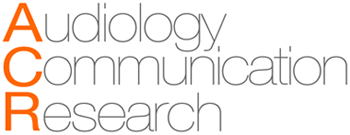ABSTRACT
Machado-Joseph disease is the most prevalent form of spinocerebellar ataxia in Brazil, and has dysphagia and dysarthria among its main clinical signs. This case report aims to ascertain the effects of intensive speech-language intervention in a patient with Machado-Joseph disease. Data collection was performed based on speech and swallowing assessment protocols and self-assessment protocols specific to swallowing-related and communication-related quality of life. Quantitative assessments of acoustic parameters were also performed. The intervention was administered through the Lee Silverman method, which is an intensive program aimed at increasing vocal intensity. The results of clinical and instrumental evaluations showed improvement in all motor parameters of speech (respiration, phonation, resonance, articulation, and prosody), besides a reduction in dysphagic signs. Regarding vocal quality, there was a decrease in hoarseness and instability, regularization of jitter and shimmer, increased vocal intensity, and improved coordination of words and phrases by expiration, as well as slight improvement of diadochokinesis. After intervention, self-assessment of swallowing-related quality of life was unchanged or improved in the domains directly related to food, but reduced in emotional domains. The patient reported satisfaction in all domains of voice-related quality of life, and scores were increased in all domains. We conclude that intensive intervention was beneficial for the participant and positively impacted their quality of life.
Keywords:
Spinocerebellar ataxia type 3; Machado-Joseph disease; SCA3; Dysphagia; Deglutition disorders; Dysarthria; Lee Silverman voice treatment; Quality of life

 Thumbnail
Thumbnail
 Thumbnail
Thumbnail
 Subtitle: F0 = fundamental frequency; PPQ = pitch perturbation quotient; EPQ = energy perturbation quotient; GNE = glottal to noise excitation ratio
Subtitle: F0 = fundamental frequency; PPQ = pitch perturbation quotient; EPQ = energy perturbation quotient; GNE = glottal to noise excitation ratio
 Subtitle: GNE = glottal to noise excitation ratio
Subtitle: GNE = glottal to noise excitation ratio